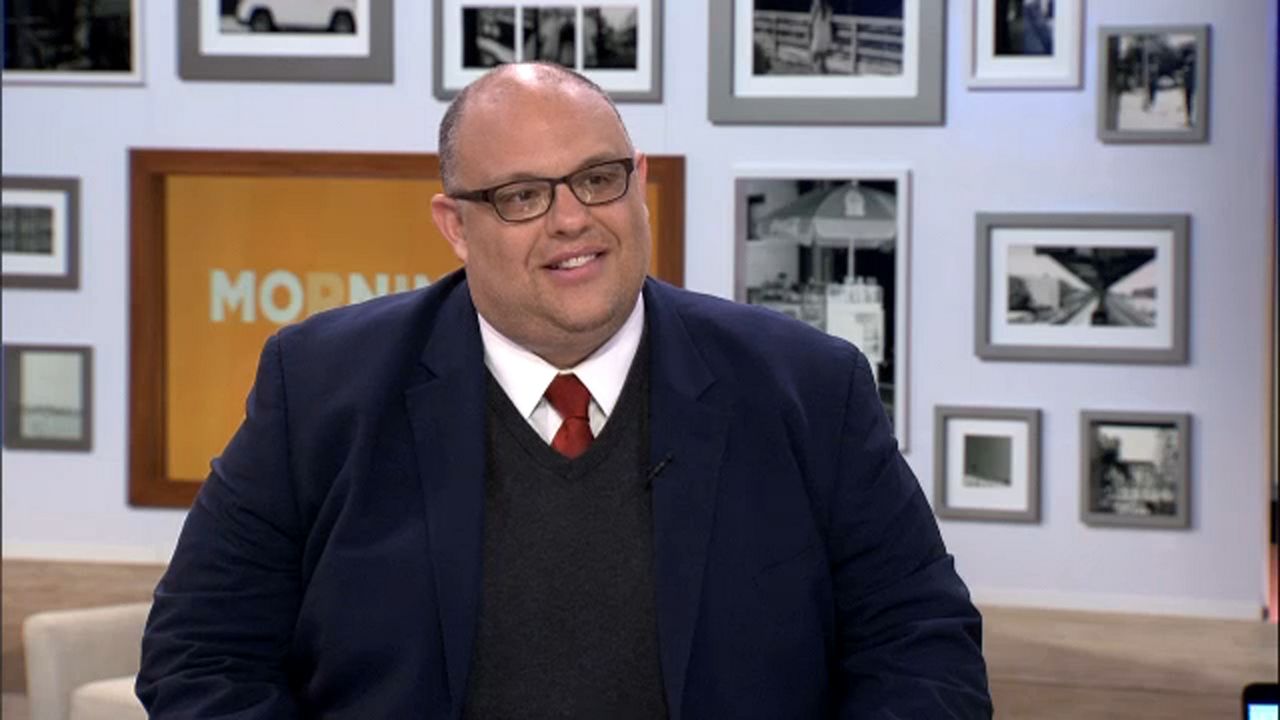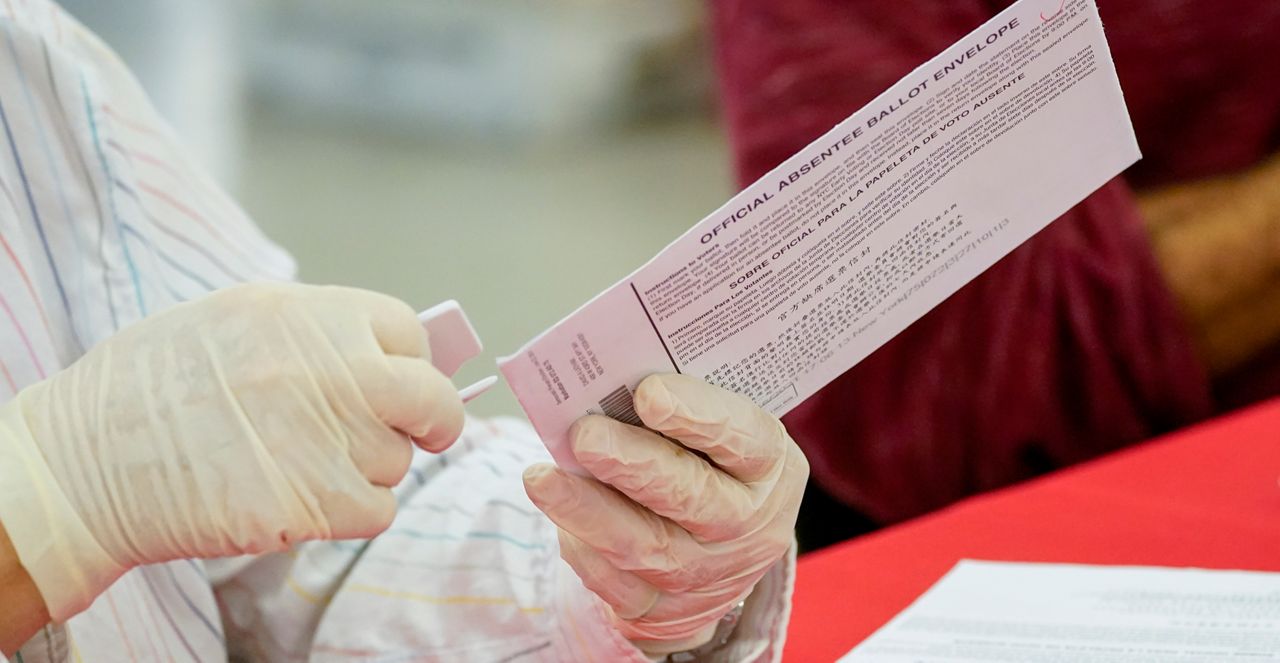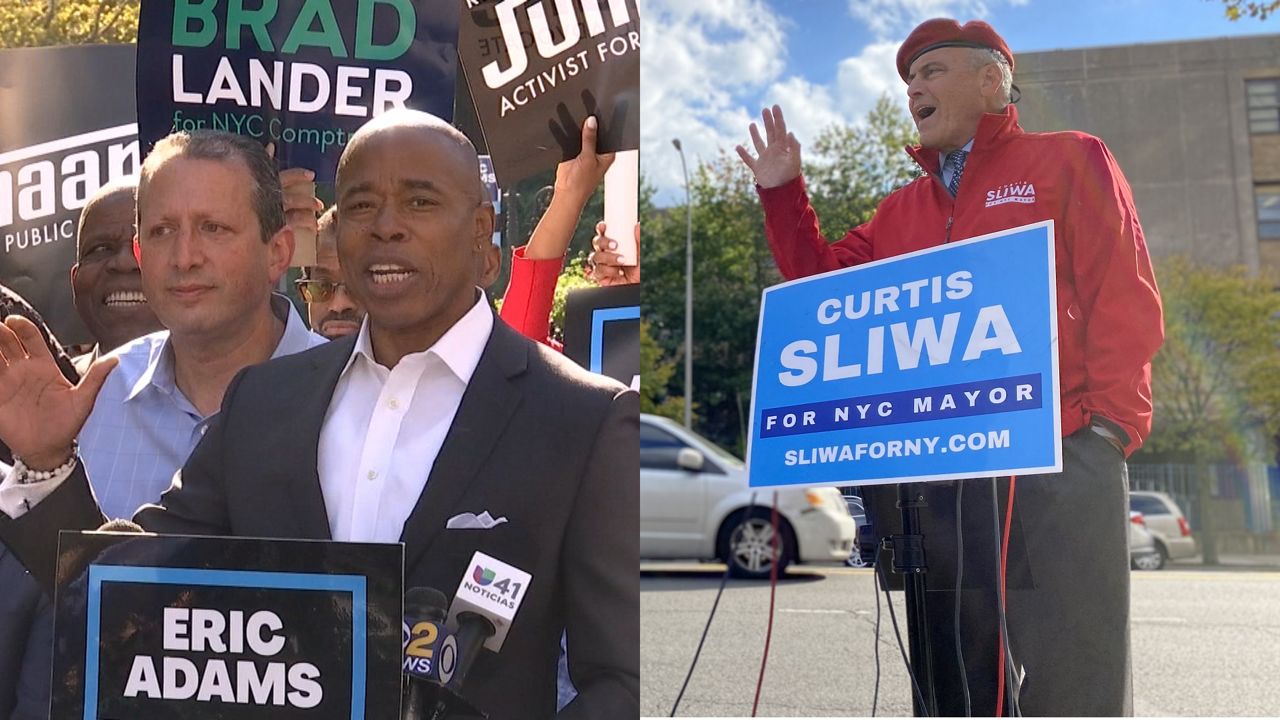A State Assembly hearing Monday on the use of ranked-choice voting in last month’s city primaries served as a platform for longtime critics to air their grievances.
“What played out on Election Day as I observed and members of my organization, I believe, was the anticipated result of a nefarious, intentional plan to dilute the vote of African-Americans,” said the Rev. Kirsten John Foy, founder of Arc of Justice.
But some non-white supporters of the new voting method made the exact opposite case.
“It’s insulting that our lawmakers, some of our candidates, people opposing RCV are saying that, pretty much, Black people or people are color are stupid and we don’t understand RCV," said Debbie Louis, lead organizer for Rank the Vote NYC. "That is not true.”
Good-government groups rallied outside the hearing in Brooklyn in part because they believed the panels inside were weighted with those testifying against ranked-choice voting.
Joining the group were victorious candidates set to introduce more racial minorities, women and LGBTQ members to next year’s City Council: Crystal Hudson, Tiffany Cabán and Chi Ossé.
“It’s the establishment versus those that look like Tiffany and I, that are not nurtured by county parties to get to where we are today," Ossé said. "And they obviously use the concepts of race and gender to weaponize their attacks against ranked-choice voting.”
City Council Member Daneek Miller, who seeks a referendum repeal of ranked-choice voting, said it was the public campaign finance system’s more generous matching funds that enticed more women and non-white candidates to run.
“Those who were out there would have been there anyway, representing or about to represent the communities that they’re going to be representing," Miller said. "So I don’t think that it is worth having a conversation about establishment and reform. That’s hyperbole.”
Democratic nominee for mayor Eric Adams also offered a harsh critique, but said he wasn’t an opponent.
He told WNYC's "The Brian Lehrer Show": “Your New York Times readers, your Wall Street Journal readers and all of those who have the ability to analyze this information, it’s fine for them. But that’s not the reality on English-as-a-second-language, that’s not the reality for 85-, 90-year-old voters.”
Ranked-choice voting won’t be used in this November’s general election or in next year’s state elections.









